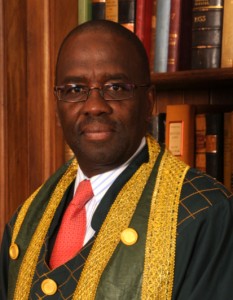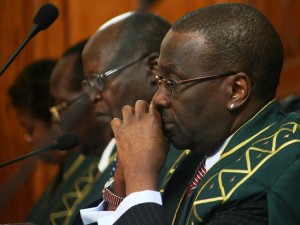Willy Mutunga – Biography, Chief Justice, Supreme Court, Kenya, Early retirement, Family, wife, children, divorce, Gay, Education, Religion, Career, Business, wealth
Willy Mutunga background
Willy Mutunga full name is Willy Munywoki Mutunga. In the professional circles he is called Hon. Justice Dr Willy Mutunga.
He was born on 16 June 1947 in Kitui County, Kenya.
Willy Mutunga Parents
Willy Mutunga’s father, Mzee Mutunga Mbiti, worked as a tailor in the small town of Kilonzo, Kitui County, Nzambani District. He died in 1985.
His mother, Mbesa Mutunga, died in 1982
Willy Mutunga Education
Willy Mutunga attended Ithookwe Primary School in Kitui. After his Primary School he proceeding to Kitui School for his Kenya Certificate of Education exams.
Being a very bright student he became the first student to score six points in the exams (an “A” in all subjects), earning him a place at the Strathmore College for his “A” levels.
Dr. Willy Mutunga received a Bachelor of Law degree from the University of Nairobi in the 1970s and thereafter a Master of Law from the University of Dar es Salaam.
He received his Doctorate of Law from the Osgoode Hall Law School at York University in Toronto in the late 1980s.
Willy Mutunga Radical activism Career
While in his teaching job as a Law lecturer at the University of Nairobi in the 1970s and early 1980s, Willy Mutunga formed a clique of academics who identified with Marxist / Socialist ideologies, including Ngũgĩ wa Thiong’o, Al-Amin Mazrui, Kamonji Wachira, and Maina wa Kinyatti.
On 19 April 1972, this group formed the University Staff Union (USU), Thereafter in 1979 Willy Mutunga became the Secretary General. This was a few months after President Moi took over power from the Late Mzee Jomo Kenyatta.
Because it was the time President Moi began to fasten his grip on power, when Willy Mutunga tried to rally USU officials for a campaign to reinstate Ngugi wa Thiong’o to his former job of teaching English and Literature at the University of Nairobi, he was arrested on June 10, 1980 and USU banned on July 19, 1980.
Ngũgĩ had been incarcerated by the Kenyatta government in December 1977, and although he was released in December 1978, he never returned to his job.
In the early 1980s, Willy Mutunga was accused of being a member of the underground group known as the December Twelve Movement and of participating in the production of the movement’s publication, Pambana. The police had allegedly found stamps used for mailing Pambana after searching Mutunga’s house.
He was charged in court on 12 June 1982 for being in possession of a “seditious” leaflet bearing the headings “J.M. Solidarity Day” and “Don’t Be Fooled: Reject these Nyayos”.
He was detained on 29 July 1982, just three days before 1 August 1982 abortive coup by the Air Force. He was also dismissed from his University of Nairobi job.
Willy Mutunga exile in Canada
After his release from incarceration on 20 October 1983, Willy Mutunga went into exile in Canada. While in Canada, he pursued his Doctorate of Law at Osgoode Hall Law School in Toronto.
Meanwhile he joined a group of exiled Kenyan students and intellectual activists to launch the Kenya Human Rights Commission (KHRC) to further the struggle for Kenya’s socio-economic justice and a democratic constitutional order.
Among the exiled students and intellectual activists were Kiraitu Murungi, then a law lecturer and pursuing his masters at Harvard Law School, Makau W. Mutua and Maina Kiai.
When Kenya returned to multiparty democracy in 1991, Willy Mutunga and other exiles began returning home. In 1992, the KHRC itself was relocated back to Kenya and registered in March 1994, starting its operations from the Chambers of Gibson Kamau Kuria and Kiraitu Murungi Advocates.
Willy Mutunga Career
Mutunga started as a lecturer at the University of Nairobi as a Law Lecturer in the early 1970s. He was dismissed from this job in 1982 after detention by the Moi Regime.
After going into exile in Canada and back to Kenya again, Willy Mutunga became the chairman of the non-governmental Kenya Human Rights Commission (KHRC) and later also served as its executive director. The KHRC supported the formation and existence of organizations such as Kituo cha Sheria and the Public Law Institute.
Willy Mutunga served as vice-chairman of the Law Society of Kenya (LSK) from 1991 to 1993 and chairman from 1993 to 1995. During his tenure as vice-chairman and chairman, he helped launch the LSK into activist politics making it appear as a more formidable opposition than the splintering opposition parties.
In 2004, Mutunga joined the Ford Foundation in Nairobi as a human rights programme officer.
In 2009, he became the executive director of Ford Foundation overseeing all grant making in Eastern Africa, mainly focusing on human rights and social justice and protection of women’s rights.
Willy Mutunga Chief Justice, President of Supreme Court Kenya
On 13 May 2011 after a televised interview, the Judicial Service Commission (JSC) recommended to President Mwai Kibaki that he appoint Mutunga. This recommendation was pursuant to the JSC’s obligation under Article 172(1)(a) of the Constitution of Kenya to “recommend to the President persons for appointment as judges”
Mutunga’s appointment was well received by major sections of the Kenyan public. Proponents highlighted his credentials as an intellectual, a “reformer”, and an “activist with a track-record of integrity and sound legal grounding”. They also saw him as the “new broom to clean up the institution,” especially the judiciary.
He Held this position of Kenya Chief Justice from 20 June 2011 to June 16, 2016 where he went for early retirement.
Willy Mutunga early retirement
The aftermath of the 2013 presidential election petition sent shivers down Willy Mutunga’s spine. His verdict was received by mixed reactions depending on which side of the political divide one pledges allegiance to.
Under the Kenya Constitution a judge shall retire from office on attaining the age of seventy years.
Willy Mutunga will attain the age of seventy years in 16th June 2017.
Coincidentally Kenya’s general elections will be held on the first Tuesday of the month of August in 2017 on August 8, 2017.
Owing that there might be a presidential election petition by the loser and he will constitutionally not be a CJ, and a new CJ will not have been nominated and appointed, Kenya will experience a constitutional crisis which might escalate to violence.
So to give room for a new CJ to be nominated and appointed and familiarize himself/herself to the office, Justice willy Mutunga opted for early retirement on 16th June, 2016.
Willy Mutunga Family
It can be said that Willy Mutunga is not a family man. He has had several women in his life who he sired children with. But he has legally married two women, all of whom he has divorced.
Willy Mutunga Children
The number of children who are known to have been sired by Willy Mutunga are a daughter and son from his first marriage and two additional sons were born out of wedlock to two different women in 1993 and 1999 while he was single.
Willy Mutunga first wife
Little is documented about Willy Mutunga’s first wife. This is the wife that he sired a son and a daughter. But they separated paving way for his single-hood from which he sired two more sons out of wedlock.
Willy Mutunga second wife Professor Beverle Michele Lax Divorce
Willy Mutunga’s second wife was Professor Beverle Michele Lax, who he married in San Mateo, California on 20 July 2000.
Not being a man who can tolerate family life, he couldn’t cope with Prof. Beverle Michele Lax and on 16 December 2009, he filed for divorce.
Prof. Beverle Michele Lax accused Willy Mutunga of being a “pathological liar” who “kept an open relationship with his former wife” and “concealed the existence of his relationship with women whom he had sired children with”.
The divorce case dragged on until he was appointed Chief Justice of Kenya Supreme Court, and Kenyans were afraid he would negatively influence the divorce outcome.
The case is still in Court.
Willy Mutunga Gay
The suspicion that Willy Mutunga was gay emerged during his cross examination in Kenya Parliament for the Post of Chief Justice.
He went to the panel wearing a stud on his ear a practice which in Kenya is associated with the abhorred gay community. Mutunga asserted that the earring was a source of ancestral inspiration and not related to his sexuality and stated that he is not gay.
The then Eldoret North member of parliament, William Ruto, said, “We cannot have a CJ who spots studs on his ears and claims he uses them to communicate with unseen spirits”. As a result, Mutunga categorically declared, “There is no way I can remove this earring even if I become the chief justice. If am told I must remove it to get the job of chief justice, I will say keep your job”
During his cross examination, the church went up in arms opposing his nomination. They cited Mutunga’s public defense of the gay and lesbian communities as evidenced by his articles in the Daily Nation which were well known for defending gay rights and “Africanizing homosexuality” in Kenya and the region. He used a pseudo name “Cabral Pinto” since 2006 to avoid conflict of interest as Ford Foundation senior manager.
Willy Mutunga Religion
Dr. Mutunga has had many religious transformations in his life. There is a big controversy surrounding his religious identity.
He started as a practitioner of African traditional religion but in 2001 was baptised a Protestant. He ten converted to Roman Catholic but shortly afterwards he converted to Islam.
As a traditional religious practitioner, he says it was his ancestors who instructed him in 2003 to wear an earring as a connection to them so that they can protect him.
On December 19, 2014 at the Kenya Literature Bureau, Willy Mutunga launched the translated version of the Bible from Greek to Kamba. The translation was by renowned religious scholar, Prof John Mbiti.
Willy Mutunga business
Willy Mutunga owns law firm in Nairobi where he earns on average Ksh. 2.3 million per month.
He also owns a share of an apartment in Westlands Nairobi valued at Ksh. 20 million
He also owns land in Kitui worth about Ksh. 2 million.
Dr Mutunga has published two books, The Rights of Arrested and Accused Persons, and Constitution-Making from the Middle: Civil Society and Transition Politics in Kenya, 1992-1997
Willy Mutunga wealth
In 2011 Willy Mutunga revealed that he received roughly Ksh. 33.3 million as future benefits (pension and investments) before taxation from the Ford Foundation.
As a chief Justice he earns Ksh. 1.27 million per month.
His law firm in Nairobi earns him on average Ksh. 2.3 million per month.